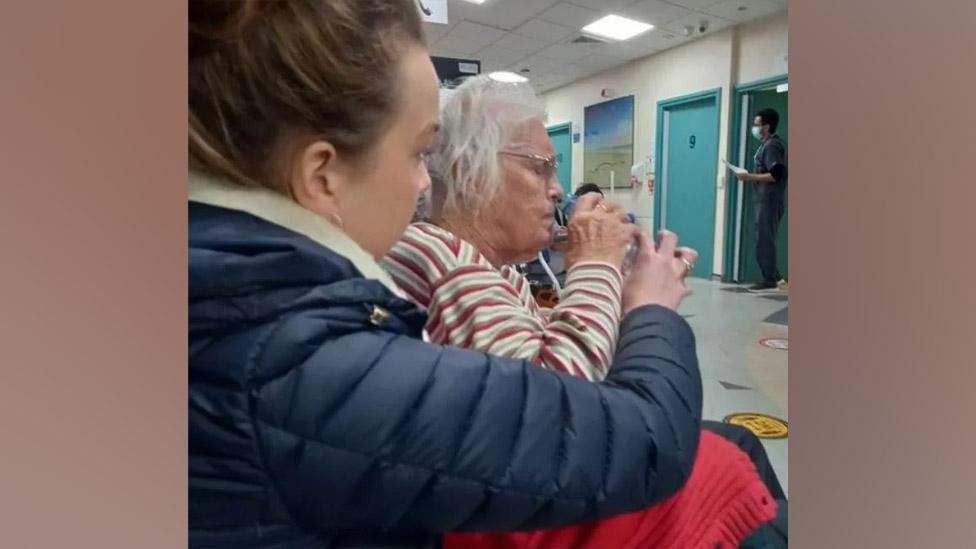Ambulance response times: Services in Wales see record lows
- Published
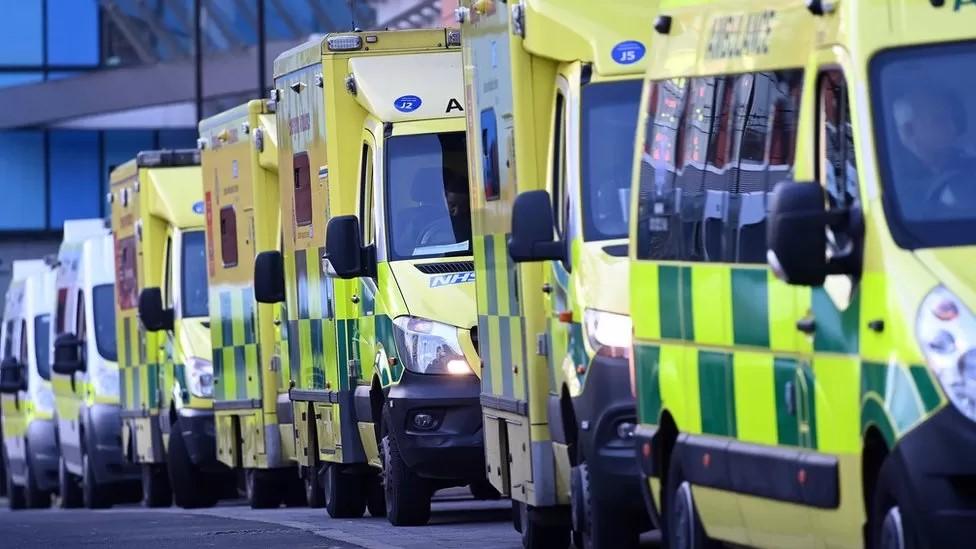
Calls have been increasing with record lows in Welsh NHS response times
The ambulance service received a record number of "red" life-threatening calls in a month in December.
Of these 5,469 calls, only 39.5% received a response within eight minutes - a record low.
This beat the previous month's low of 48%, with the target being 65%.
The Welsh Ambulance Service said the system had been under pressure but it was "not a situation that we're happy with".
The average response time was 10 minutes in December - the slowest on record, with the average over the four years up to that month being six minutes.
Figures were released on a day in which 1,000 ambulances workers were striking across Wales in a dispute over pay and conditions.
Meanwhile, handover delays - the time ambulances are spending outside major A&E units waiting to hand over patients - also reached record levels.
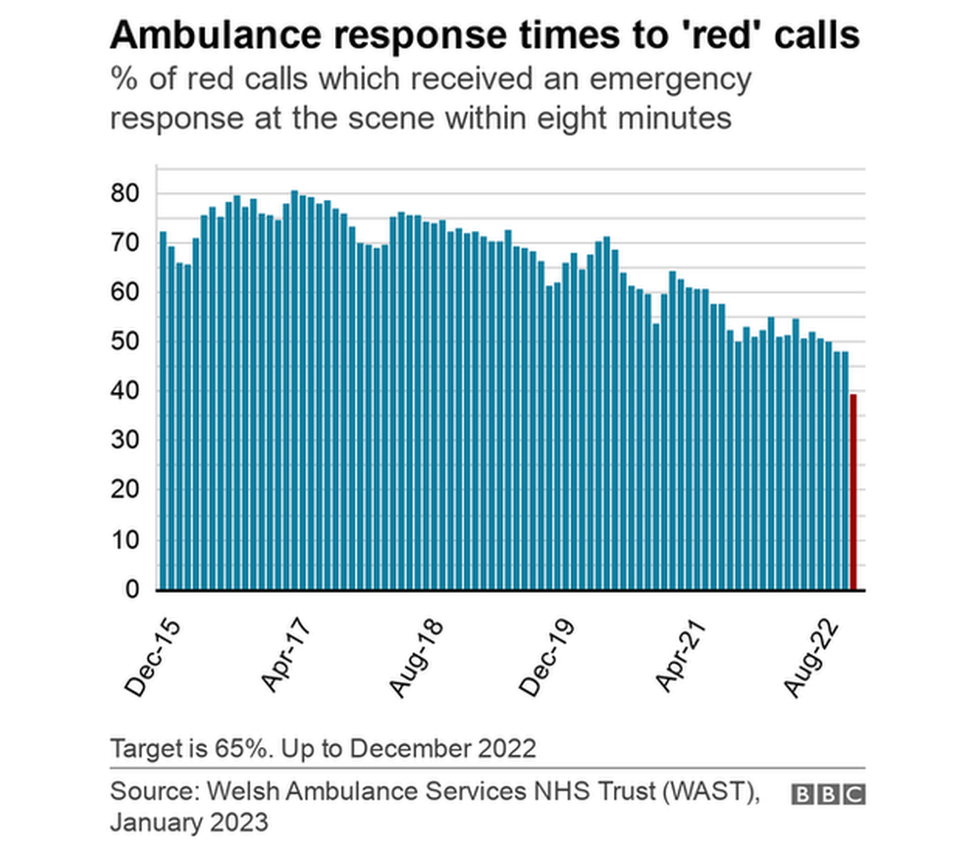
The Welsh government admitted the NHS in Wales was "still under enormous pressure". It added that data suggests December saw the busiest day on record.
Opposition parties have described the situation as "a horror show" calling for urgent action to address the "crisis".
There were a total of 31,319 "lost" hours in December - this time is counted after an ambulance spends more than 15 minutes outside emergency units.
Through 2022, more than 291,345 hours were lost to handover delays.
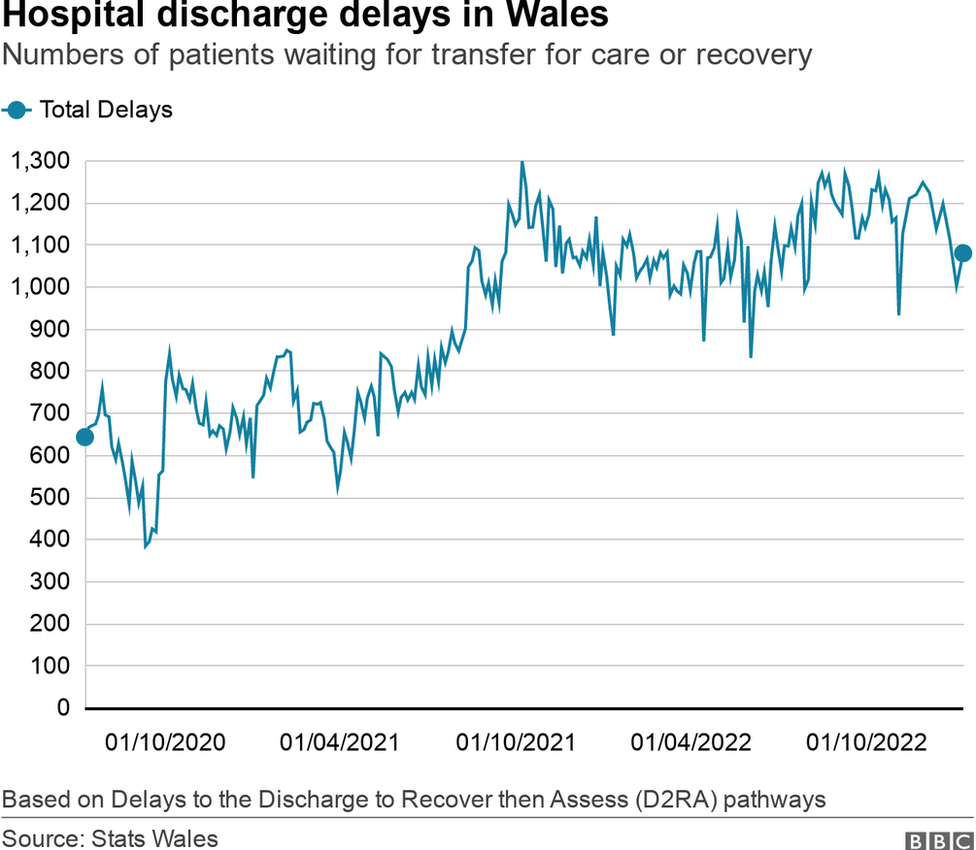
Waiting times in A&E were also the worst on record with only 63.1% of people seen within the four hour target.
The worst was at Morriston Hospital in Swansea, where only 43.7% were dealt with within that time in December.
Those waiting more than 12 hours or more were also at record levels - and numbers passed the 12,000 mark for the first time.
The target is that no patient should wait that long - on average, patients waited three hours and two minutes in A&E - the third highest time on record.
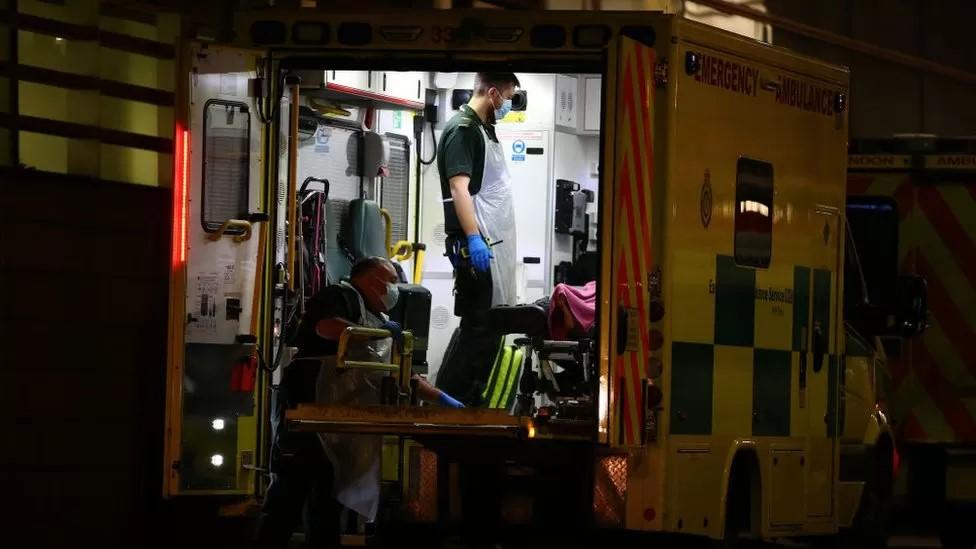
There have been record waits both in responding to emergencies and within hospitals
There are still more than 1,000 patients in hospital waiting to be discharged - either into long-term care or further recovery.
This figure has not dropped below four figures since June.
Cancer waiting times showed an improvement and were at their best levels since early summer 2022, with 53.9% of patients starting treatment within two months of cancer being suspected.
The only area where things did not get better was the Betsi Cadwaladr health board area - although it still had the highest proportion of people starting treatment within the target time.
While it is due to eventually rise, the target is currently 75%.
Welsh Ambulance Service assistant operations director, Sonia Thompson, said: "It's not a situation that we're happy with."
Ms Thompson said the pressure on the service had been well documented, adding: "There is a huge effort to try to solve the issue.
"It is not a problem that's easy to solve and we need to work with health boards and the government to ensure that we can bring in changes to improve the situation.
"But there isn't just one answer."
Health minister Eluned Morgan said the Welsh government knew December would be difficult for emergency care.
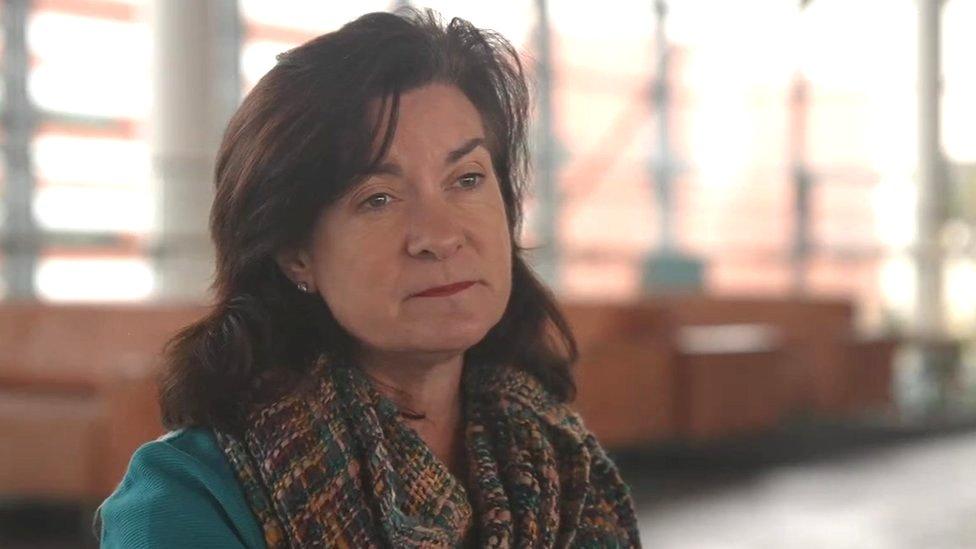
Eluned Morgan said the Welsh government "knew" December would be difficult
"We've had really high levels of Covid, really high levels of flu, high levels of strep-A," she said.
She added: "Because of the significant services we put in place this year compared to last year, we are diverting 70,000 people a month away from our emergency centres.
"That means that our performance in those major emergency departments when it comes to four hour waits are better than they are in England."
But the health minister said she was "not happy with the performance".
"I've never given a suggestion that I'm willing to live with this. I'm working every day to make sure that we make improvements," she said.
The Welsh government spokesman said: "Whilst we acknowledge emergency care performance is not where we expect it to be, we are driving system improvements, including extending same-day emergency care services to open seven days a week, improving management of 999 patients on the phone, and recruiting more staff.
"Without all this the pressure on the system would be even greater."
Plaid Cymru health spokesman Rhun ap Iorwerth called for "new and innovative thinking" to "drastically improve" waiting times, saying the situation is a "crisis".
"These are another dire set of figures that only serve to highlight the daily suffering in the Labour-run NHS in Wales where patient safety is at risk and staff morale is utterly broken," said Welsh Conservatives health spokesman Russell George.
Welsh Liberal Democrat leader Jane Dodds said: "Increased excess deaths, thousands on waiting lists and hours until an ambulance arrives, this is a horror show that the Welsh Labour government has failed to get a hold of."
Related topics
- Published19 January 2023

- Published9 January 2023
